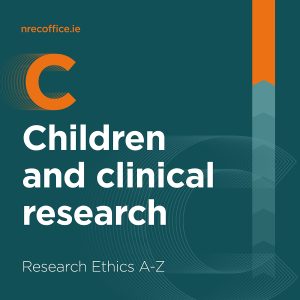 According to an old proverb, children should be seen and not heard. Thankfully the world has mostly moved on from that cruel norm. But in paediatric clinical research, how can we ensure that young patients and their guardians are both seen and heard?
According to an old proverb, children should be seen and not heard. Thankfully the world has mostly moved on from that cruel norm. But in paediatric clinical research, how can we ensure that young patients and their guardians are both seen and heard?
The ethics and complexities of including children in clinical research run deep, according to Paul McNally, a consultant in Respiratory Medicine and Director of Research & Innovation at Children’s Health Ireland (CHI) and Associate Professor of Paediatrics at Royal College of Surgeons in Ireland (RCSI) University of Medicine and Health Science.
They include the need to communicate clearly with children and guardians, and to weigh the long-term risks and benefits of treatments.
So how can Ireland encourage ethical and balanced involvement of children in clinical research studies and trials while still increasing participation?
Paul, who has run several research studies involving children with cystic fibrosis (CF), believes the key is to keep improving trial infrastructure, connectedness and training, to ensure that children get the best possible treatments now and into the future, while maintaining high levels of quality and ethics.
Children are not little adults
Children need to be involved in clinical research, explains Paul, because they are not simply ‘little adults’ and we need proper evidence to understand how best to care for them given the significant physiological changes that happen in different stages of childhood.
“We can’t just elaborate from adults down to children, because that exposes them to risk,” he says. “It is great that we have moved on and it is now understood that we have to perform trials in children, so we can give them the opportunities that other patients have.”
But as well as being physiologically distinct from adults, children also think and behave differently to adults, and the relationships between children, adults and healthcare professionals quickly becomes complex, he adds.
“You have a relationship between the child and the doctor, between the parents and the doctor and between the parents and the child,” says Paul.
The paediatric setting also includes the cognitive processes of the child, the advocacy of parents and guardians and the need for healthcare professionals to consider the potentially life-long implications of treatment and communicate in a meaningful way, he adds.
And in all this cross-talk, notes Paul, the voice of the child can get lost.
“For people who work in paediatrics, we love the fact that it is complicated and engaging,” he says.” But there is risk associated with research in paediatrics, because of the complexity.”
Assent and consent
The process of gaining assent and consent from patients and guardians is particularly fraught in paediatrics, notes McNally.
Parents are keen to sign and clinicians are keen to recruit, he explains, and people may not understand what is being said, or they may stop listening and sign.
“We have to be very careful we are getting the balance right here,” he says.
The answer lies not in providing patients and guardians with even more information, but in ensuring that key points about the study are delivered clearly, he explains, and we need more and repeated training of the people at the coalface who are tasked with explaining the study.
Cystic Fibrosis trials
Paul knows first-hand the power of involving patients in clinical research. At CHI, he has been a lead researcher on several studies with children who live with cystic fibrosis, a life-long condition that predominantly affects the lungs and bowels.
Those studies have looked at new, targeted CF drugs including Orkambi (lumacaftor-Ivacaftor) and the new highly effective drug Kaftrio (Elexacaftor, Tezacaftor, Ivacaftor), and McNally has seen the benefits of asking ‘real-world’ questions about their effects on people with CF.
The clinical research at CHI and partner sites in Ireland and the UK has so far shown how targeted drugs can improve lung function, reduce the need for antibiotics and improve quality of life. The treatments have many other benefits too but that they may not necessarily prevent the progression of disease in the longer term, underscoring the need to start early.
Today, Paul is leading the ENHANCE programme (Establishing Natural History in an Advanced New CF Care Era), which spans 13 paediatric CF clinic sites in Ireland and the UK, and which looks at CF complications in young children.
Moves to connect
As in the case of ENHANCE, research studies are often made more powerful when they are carried out across multiple centres, and Children’s Health Ireland is creating a more connected infrastructure on the island of Ireland to link up research and training, according to McNally.
The new Paediatric Academic Health Centre and Network aligns not only the Dublin based CHI and four university partners – Trinity College Dublin, University College Dublin, Dublin City University and RCSI, but children’s services and universities across the Island. Structures are being developed to integrate paediatric research and clinical trials more closely with clinical care in Ireland. “It’s early days but all very exciting,” he says.
This blog has been written on foot of one of a series of presentations given by subject matter experts at the National Office’s ‘Lunch & Learn’ series. This is a learning and educational programme for the National Research Ethics Committee (NREC) members and wider research ethics community in Ireland.

